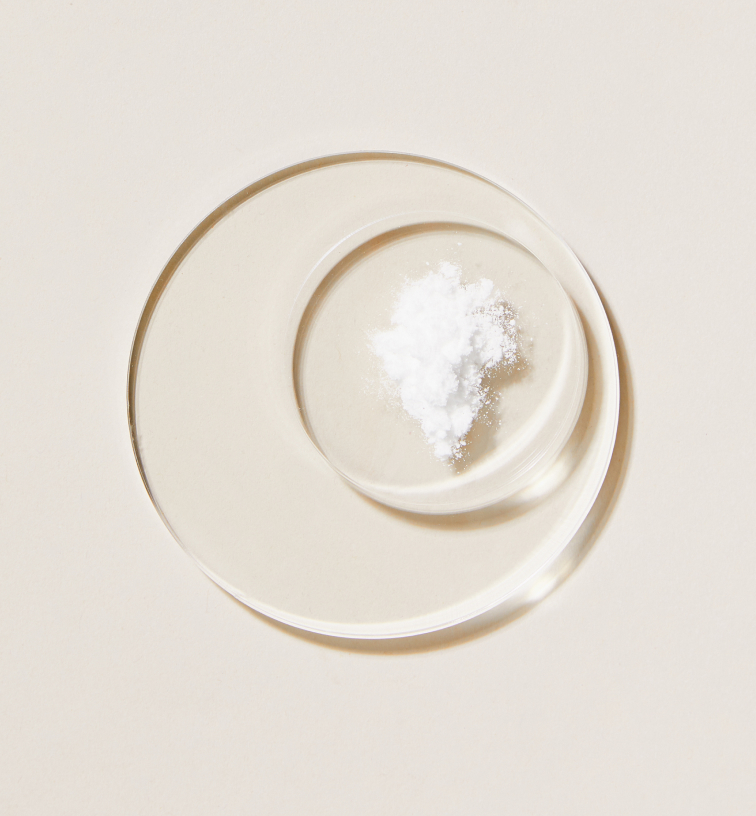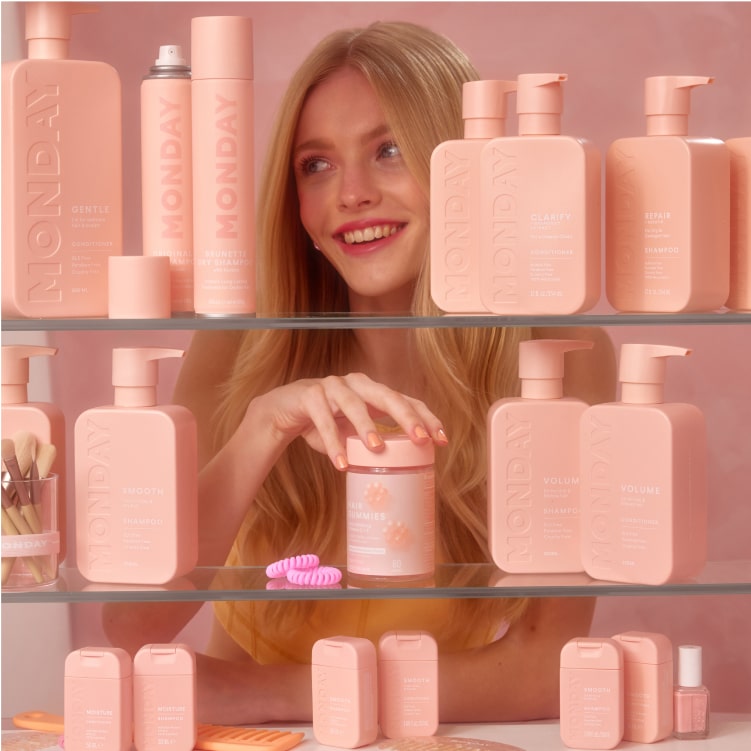With an increase in knowledge and awareness of potentially harmful or irritating ingredients included in the beauty products we use, parabens have come into sharp focus. You’ll no doubt have noticed a “paraben-free” claim on many bottles in the hair care aisle, as many haircare brands—including MONDAY—move away from using them in their formulas. In this article, we will delve into parabens, exploring what they are, what they do, common alternatives, and why you might choose to opt for a paraben-free shampoo and conditioner.
What Are Parabens?
Parabens are a class of synthetic preservatives used to prevent the growth of bacteria, mould, and fungi in various cosmetic products, including shampoos and conditioners. They have been widely utilized in the beauty industry for decades due to their effectiveness in extending the shelf life of products.
What Do Parabens Do?
The primary function of parabens is to act as preservative, inhibiting the growth of microorganisms that can negatively impact your beauty products, and improve their quality and longevity. They are inexpensive, easy to use, and have broad-spectrum antimicrobial properties, making them a popular choice for manufacturers. Parabens are also not water-soluble, meaning they don’t easily break down inside a formula, and can continue to work effectively over several months or years.
The Importance of Preservatives in Cosmetics
In beauty terms, a preservative is any ingredient that helps to preserve the shelf life and stability of a product. One of their main purposes is to protect the formula from developing harmful microorganisms such as bacteria, yeast, and moulds. Beauty products contain water and several other ingredients that (while effective and safe) unfortunately are also loved by these harmful microorganisms as a food source.
Without some form of preservative, many beauty products would have a very limited shelf life, and quickly lose their potency, as the microorganisms compromise the ingredients inside. The bacteria and mould that would be able to thrive as a result would also of course be detrimental to your health once they come into contact with your body through then applying them to your face, body and/or hair. Therefore, incorporating some kind of preservative into a formula is highly beneficial, and considered common (and safe) practise in the beauty industry.
Concerns Around Parabens
While parabens have been deemed safe for use in cosmetics by regulatory bodies such as the FDA and the European Commission, concerns have arisen regarding their potential impact on human health. Some studies have suggested that parabens may mimic estrogen, a hormone that plays a crucial role in the body’s endocrine system. This has raised concerns about the potential for hormonal disruption and its possible link to certain health conditions.
There is also some evidence that parabens can cause allergic contact dermatitis, though these are considered rare. It’s worth noting that the evidence around parabens and their potential health effects is generally limited, and they are generally considered safe at low concentrations like those found in cosmetics.
Opting for Paraben-Free Formulas
Out of an abundance of caution, some people prefer to look for products that do not contain parabens, and instead contain alternative ingredients that still act as preservatives, without the same potential for risk. Some natural preservatives include (but are not limited to) sodium benzoate, sorbic acid, citric acid, benzoic acid, benzyl alcohol and potassium sorbate. Even salt has preservative properties, and is effective as a preservative because it reduces water activity when included in a formula.
Preservatives Used in MONDAY Haircare
At MONDAY, we pride ourselves on our modern, premium formulas that are made without SLS and parabens. Instead of parabens, we use preservatives such as phenoxyethanol, sodium benzoate and benzyl alcohol. Our formulas can vary between regions and also by product, but you can always find the full list of ingredients in your particular MONDAY Shampoo or Conditioner on the back of the bottle.
At MONDAY, while we don’t consider parabens to be unsafe or harmful, we’re all about providing you with options that align with your values and choice in ingredients. When developing our range, a call for paraben-free formulas was something we heard most often, and this has shaped the MONDAY products you know and love.



